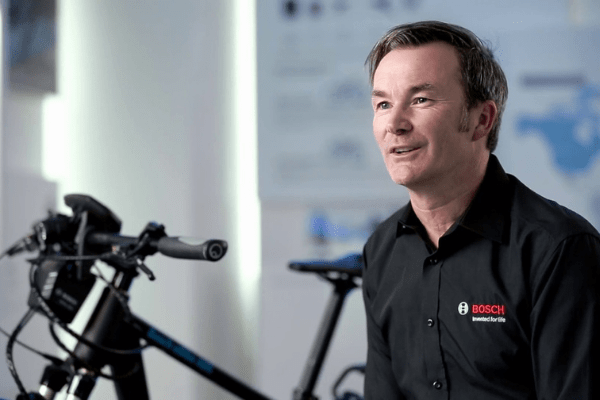Confirming what was published in the previous article “Update on the e-bike market and the actions taken by E-BIKE TRAVEL”, and to reinforce the concept that the world of e-bikes is experiencing a moment of great development but also of great confusion, we publish an excerpt from an interview given to BikeEurope by the CEO of Bosch eBike System, mister Claus Fleisher:
What was the biggest challenge that Bosh eBike System had to face during the Covid-19 crisis?
“It has been a difficult time for our team since the first lockdown. Above all, we had to take measures to protect everyone's health and safety. We are trying to bring teams back to the office, but obviously in small numbers for everyone's safety. 2020 has been a huge challenge for the industry and there is still a lot of uncertainty. After the first lockdown in April and May, followed by the reopening of bike shops, everyone was hoping to sell throughout the summer but the huge demand for e-Bikes, after the first lockdown, resulted in an empty pipeline.
On a previous occasion you provided a forecast of the expected market share for e-bikes in Germany. In 2015 the growth estimate attributed a market share of 33%, but currently the estimate has risen to 65%. Given the current market situation, what do you expect in terms of market share and sales volume in Germany?
Overall I think we can confirm the trend of increasing e-Bike sales in Europe, with a considerable increase in market share. When we see this momentum, we need to carefully monitor whether there is enough income. 2021 will bring a lot of uncertainty and we may even see an increase in private insolvencies or small businesses experiencing financial problems. Overall, I think we're in a healthy environment; the short-term projection is that one in two bicycles will be an e-Bike and, in the long term, two in three.
The e-bike market in other European countries has also changed dramatically in recent months. What are your forecasts for the European market?
Initially our main markets were Germany, Austria, Switzerland and the Netherlands. Now the other countries around this group are also developing well. I always call it a concentric loop development around our core markets. People in countries such as France, Italy, Scandinavia but also in Eastern Europe are increasingly interested in e-Bikes.
The question is: how much are these countries investing in infrastructure?
When people cycle they want a safe environment, which means more infrastructure. It will also depend on how these countries manage to communicate that e-bikes are an alternative to motorized transport, as is the case, for example, in the Netherlands, Germany and Denmark. In these countries, cycling is also culturally rooted in society and the hope is that other countries will also acquire this prospective vision.
Which countries outside the core markets are most important for Bosch?
We now see the highest momentum in the development of e-Bike sales in France, the United Kingdom and Italy.
Product availability has been a major issue in the industry as sales took off immediately after the first Coronavirus spike in the spring. According to industry insiders, product availability will also be a bigger issue in 2021. What is your observation on this?
We hear the same from our OEM manufacturer. In addition to this, we also follow the supply situation closely. There was very dynamic behavior in the second and third quarters with order cancellations subsequently followed by a new increase in those orders. There is a high level of uncertainty across the industry. When OEMs change orders further down the supply chain, disruptions can occur. The industry can hardly handle them as every shop and warehouse is empty and this becomes a problem when demand is higher in the coming years as expected. If this is combined with what we hear from suppliers of Asian mechanical components, such as frames, forks, brakes, there will be a supply shortage that can limit the market's growth potential. For our part we can say that we do not see a shortage for us.
We have been doing our work in our country for the last two years, we have invested heavily in our production and logistics capabilities and have worked closely with our suppliers. I would say “never say never”, but for 2021 we are OK in terms of capacity and have a high inventory. All products are in stock and we can ship everything. I think the market shortage will come from mechanical components.
As a leading supplier to e-Bike assemblers, do you think everyone is adequately anticipating the new market situation?
Yes, I would say yes, everyone watches the market and takes the development on their side very seriously. In our discussion with OEM customers, we heard that everyone is planning for future scenarios. One of the scenarios is “prepare for the best”. In case the market grows well, as I just said, we have the ability to support them.
Maybe it's too early to talk about it, but do you think the e-Bike industry will thrive in the long term from the pandemic crisis?
Even before the pandemic, e-Bikes were experiencing stable growth in a healthy market.
We saw a brief hiatus in the second quarter, but we recovered quite quickly as an industry. There is huge momentum from changes in society with a changing mobility megatrend and the e-Bike is the number one mobility solution.
If society and urban planners have learned from what we have seen this year, the industry will benefit, as it has clearly shown the potential of bicycles and especially e-Bikes.

